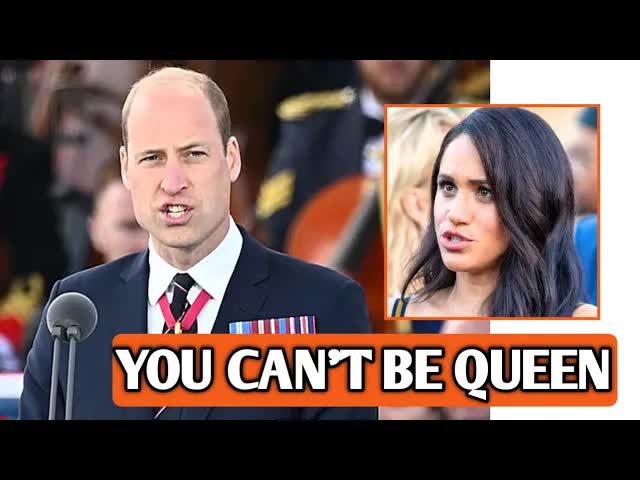Tensions within the British royal family are escalating, with Prince William‘s vision for the monarchy clashing dramatically with the paths chosen by Prince Harry and Meghan Markle.
Since their departure from royal duties, known as Megxit, the rift has only widened, especially following the explosive Oprah interview that laid bare the family’s struggles.
This ongoing saga has left a legacy of mistrust and strained relationships that seem to deepen with each passing day.
King Charles has shown some understanding of his son Harry’s choices, expressing sorrow over the situation.
However, Prince William, who is poised to inherit the throne, is adopting a much tougher stance.
His focus is on creating a unified and scandal-free image for the monarchy, which could mean sidelining his brother and sister-in-law in the process.
This calculated approach reflects William’s belief that the monarchy’s survival depends on projecting a strong, cohesive front, especially in today’s fast-paced world.
Harry and Meghan’s decision to carve out their own independent path poses a serious threat to this carefully curated image.
Their progressive views and global branding efforts stand in stark contrast to the traditional values that the monarchy has upheld.
To William, their actions are not just a matter of personal choice; they undermine the very foundation of the royal institution.
The potential stripping of titles from Harry and Meghan isn’t just about prestige; it’s a strategic move aimed at reinforcing a narrative that prioritizes loyalty to the crown over individual ambition.
For the couple, losing these titles would represent a significant blow, impacting more than just their royal status.
Their brand, which relies heavily on their royal heritage, would face a crisis of legitimacy and influence.
Titles are not mere formalities for Harry and Meghan; they are crucial assets that enhance their credibility, attract funding, and facilitate opportunities for their charitable endeavors.
Without these titles, their ability to secure partnerships and maintain their global influence could be severely compromised, forcing them to rethink their entire brand strategy.
How Harry and Meghan respond to this potential loss remains uncertain.
They might decide to accept a rebranding, viewing it as a necessary step toward mending fences with the royal family.
On the other hand, they could choose to push back against the palace narrative, leveraging their platform to highlight their side of the story, which could escalate tensions even further.
Their decision will likely hinge on their personal beliefs and an assessment of the risks involved.
Will they prioritize their independence or seek some form of reconciliation?
The stakes are high, and their response could significantly influence their future trajectory.
King Charles finds himself in a difficult position, torn between his fatherly instincts and his obligations to the monarchy.
While he might empathize with Harry and Meghan’s plight, the pressure to uphold the royal image weighs heavily on him.
Balancing familial love with royal duty is no easy task, and Charles must navigate this treacherous terrain carefully.
This internal conflict lays bare the challenges that come with being a monarch.
The demands of duty often clash with personal relationships, compelling Charles to make decisions that may be painful for him and his family.
It’s a sobering reminder that, for a king, the lines between family loyalty and royal responsibility can become blurred.
As this drama unfolds, the ramifications extend beyond Harry and Meghan.
The future of the British monarchy hangs in the balance, caught in the crossfire of personal ambition and royal tradition.










